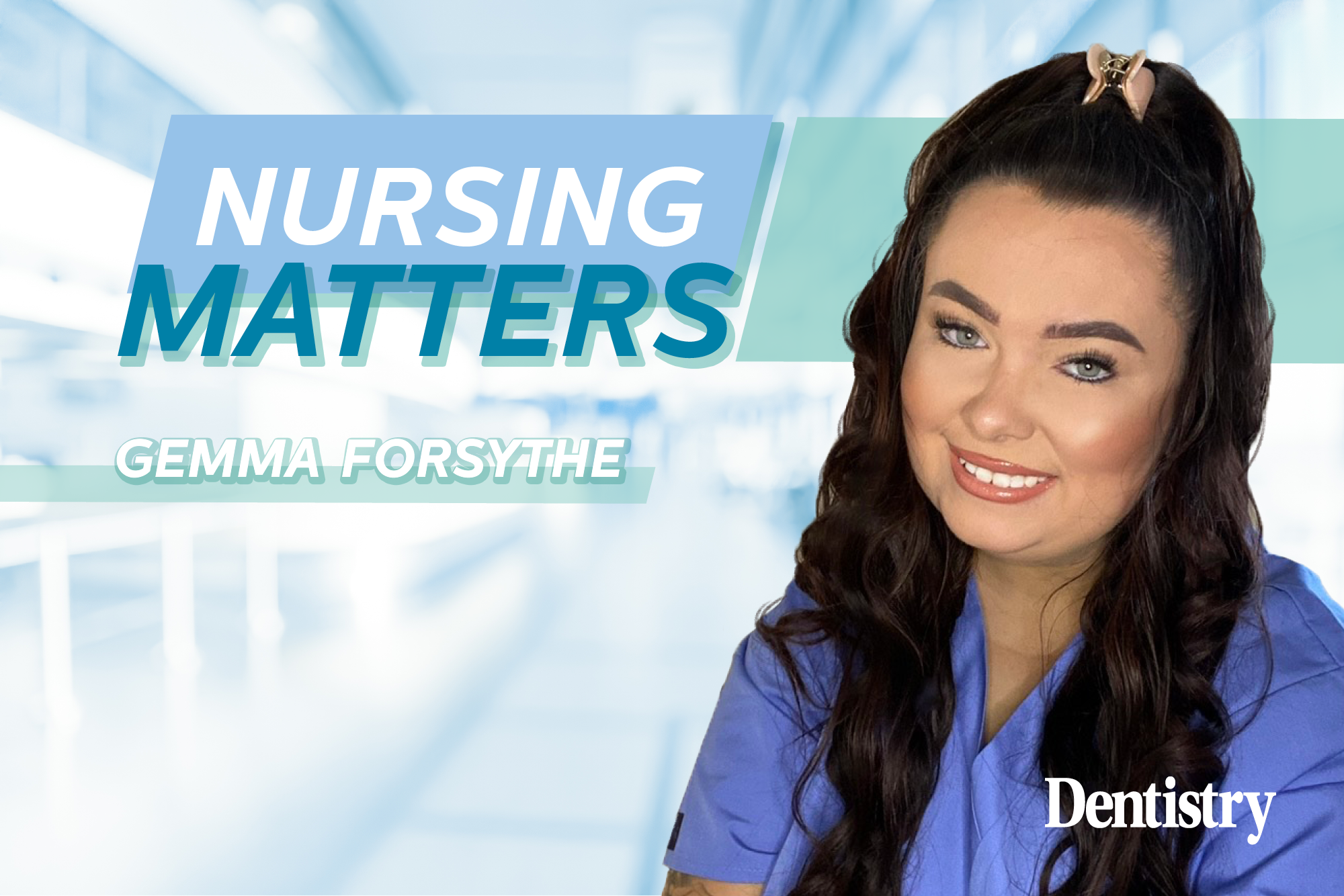
Gemma Forsythe discusses how dental nursing is overshadowed and unrecognised – despite its crucial role in patient care and general running of the practice.
The dental field in general is definitely underrated in healthcare.
Despite our vital role, the contributions of dental nurses can go unnoticed a lot of the time, often overshadowed by the role of the clinician.
Dental nurses are often regarded as the ones who pass the instruments, perform suction or complete cleaning duties and are seen as ‘just the dentist’s assistant’, ignorant to the extensive knowledge, skills and training that it takes to qualify as a dental nurse. (And that is before undertaking any additional skills or post-qualification certificates!)
This lack of recognition completely disregards the paramount role that dental nurses play in patient care within dentistry and takes value from this.
Empowering dental nurses
The reason that I originally began my dental Instagram page was because I qualified as an oral health educator during COVID-19 and was unable to visit facilities to spread important oral health messages.
I was thinking of a way I could still spread those all important messages, so I thought social media would be the best way – especially as everyone was sitting scrolling through their phones while staying home at the time!
Fast forward to now and it has become so much more. I share more about my role as a dental nurse, trying to increase exposure for our all important role.
Also, I regularly get messages via Instagram from people who work in healthcare that are looking for a new role and they ask me about dental nursing which I love.
I want to gain recognition for dental nurses and empower dental nurses to thrive within their role.
Crucial role
Dentistry has come a long way – as has the role of the dental nurse. What was once a very much supporting role has now led to dental nurses becoming very actively involved in patient care, education and treatment planning.
Preventative care, such as providing oral health education, becoming an oral health practitioner and fluoride application, can all be undertaken by dental nurses.
Our role in educating patients on post-treatment care, oral hygiene instruction, and diet and nutrition is paramount to long-term good oral health.
Team effort
I think that (most) dentists are very appreciative of our role as dental nurses. Especially as now we do more than ever to support them in their role – whether that be checking that lab work is in prior to the patient’s appointment, making sure they have that specific special bur that they love for their restorative treatment or contacting a patient to see if they are alright after their treatment.
These little things are, of course, in addition to our other mountain of tasks. These include cleaning down and setting up between appointments, monitoring and reassuring patients throughout their time in the chair and keeping on top of all things cross-infection control, such as processing instruments.
There is then the controversial subject of clinical notes. Personally, I like to assist my clinician with completing notes as I believe this really improves our efficiency and it is easy to jot a few things down while the dentist is chatting, examining or administering local anaesthetic.
These are, of course, all as directed by the clinician, who checks and amends as necessary before saving. However, I do believe this works both ways…
In the same way that I help with clinical notes when I get the chance, if we are running behind and I am cleaning down and setting up, my clinician will step in and help me – it is all a team effort!
Building relationships based on mutual respect will achieve the best patient outcomes, and will create a more collaborative and enjoyable environment.
We keep the practice running
The dental nursing role is so varied – we are often juggling many responsibilities including chairside nursing, patient care and administrative tasks (which may include reception duties).
Our role is very demanding and is fast-paced – our day can flip upside down in a very short space of time due to the time constraints of appointments and adding dental emergencies into the mix.
We manage such a diverse range of patients, ranging in age and levels of dental anxiety, and we are adaptable to each and every one of these to engage appropriately and provide comfort to our patients.
Moving forward, I would love to see better professional development, fair remuneration and more recognition for dental nurses.
I feel that increased specialisation opportunities and expanded scope of practice could also help to increase recognition and respect for our role, as well as giving dental nurses greater job satisfaction.
Having new continuing education courses in topics dental nurses are actually interested in will broaden our avenues for professional growth. In addition, this will not only benefit dental nurses, but also their practice (that will have a more skilled team) and the quality of patient care.
I feel that promotion of a collaborative environment within dental practices between dentists and dental nurses is essential to elevating morale. Employers should be showing frequent appreciation for their dental nurses – after all, we keep the practice running and, without us, dentists simply could not do their job.
Catch up with previous Nursing Matters columns:
- I’m a qualified dental nurse… what now?
- Tackling stress and shortages in dental nursing
- Addressing menopause in the dental practice
- Domestic abuse: is it any of our business in dentistry?
- From dental nurse to client experience manager: finding your strengths.
Follow Dentistry.co.uk on Instagram to keep up with all the latest dental news and trends.


